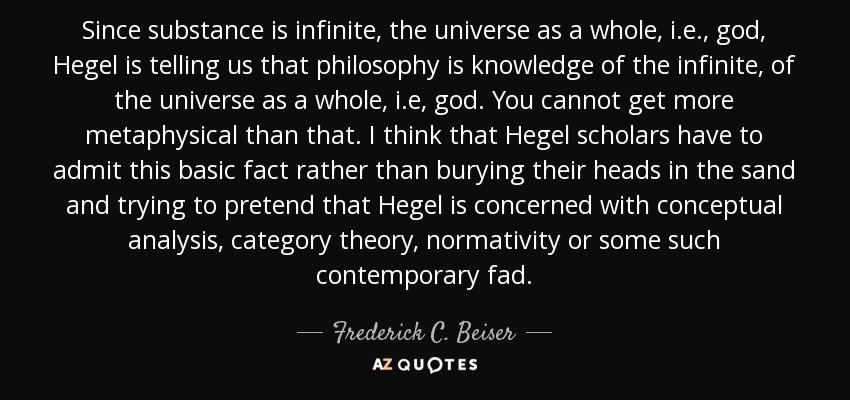Hegel Quotes - Page 2
-
-
 Since substance is infinite, the universe as a whole, i.e., god, Hegel is telling us that philosophy is knowledge of the infinite, of the universe as a whole, i.e, god. You cannot get more metaphysical than that. I think that Hegel scholars have to admit this basic fact rather than burying their heads in the sand and trying to pretend that Hegel is concerned with conceptual analysis, category theory, normativity or some such contemporary fad.
Since substance is infinite, the universe as a whole, i.e., god, Hegel is telling us that philosophy is knowledge of the infinite, of the universe as a whole, i.e, god. You cannot get more metaphysical than that. I think that Hegel scholars have to admit this basic fact rather than burying their heads in the sand and trying to pretend that Hegel is concerned with conceptual analysis, category theory, normativity or some such contemporary fad.
-
You May Also Like Quotes On:









